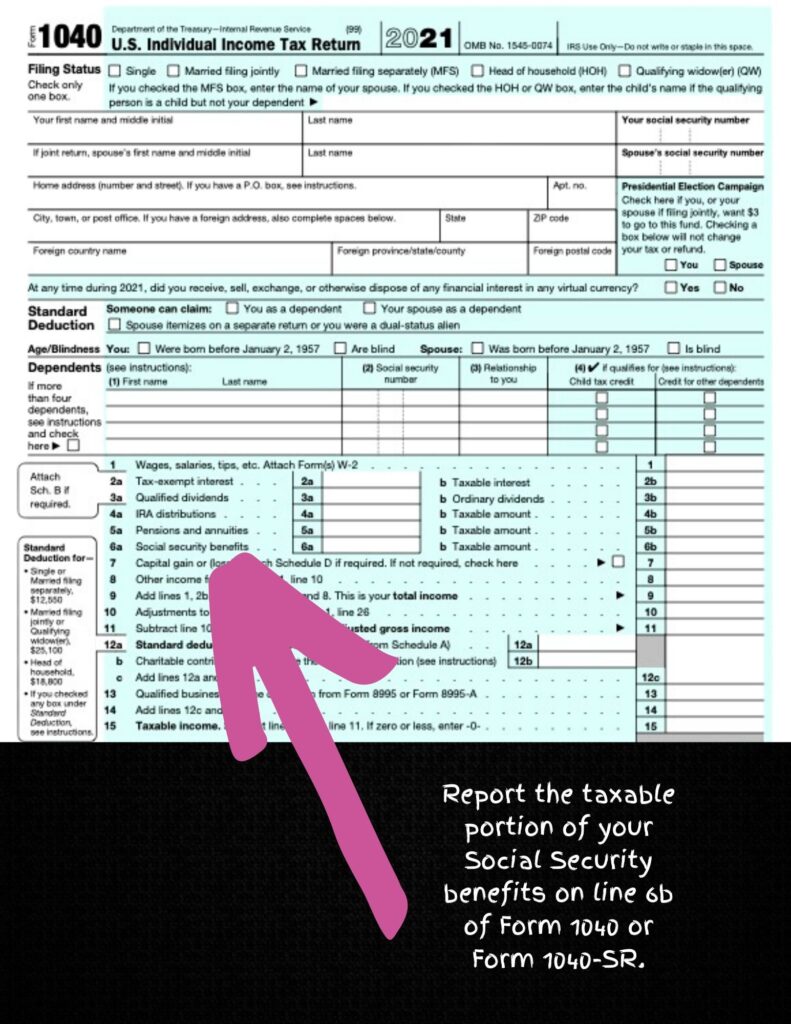
Understanding the tax implications of your Social Security disability benefits is crucial for effective financial planning. While many SSDI recipients may not owe taxes on their benefits, those with additional income sources should carefully assess their tax obligations. By staying informed and seeking professional advice when needed, you can navigate the tax aspects of your disability benefits with confidence.
Many disability claimants ask their tax preparers the same question every tax season: are my disability Social Security benefits taxable? The answer depends on various factors, including your total income and filing status. This comprehensive guide will help you determine if your SSDI benefits are subject to federal taxation and provide strategies to manage any potential tax liabilities.
Let’s discuss the most important things you need to know about filing your taxes while receiving Social Security Disability benefits.
Understanding SSDI and SSI
Before delving into tax specifics, it’s essential to distinguish between two primary programs administered by the Social Security Administration (SSA):
-
Social Security Disability Insurance (SSDI): This program provides benefits to individuals who have worked and paid into the Social Security system but are now unable to work due to a qualifying disability.
-
Supplemental Security Income (SSI): SSI offers financial assistance to individuals with limited income and resources, regardless of their work history.
Importantly, SSI benefits are not taxable. If you receive SSI, you do not need to report these benefits on your tax return.
Do You Have to File Taxes on Social Security Disability?
Tip #1: Determine if you are receiving SSDI or SSI disability benefits. The SSI program is needs-based. It has strict income and resource limits that individuals must meet to qualify for benefits. Because the benefit population has a low-income threshold, SSI benefits are NOT taxable. If you receive SSI disability payments through SSI, you do not owe taxes on those benefits.
Tip #2: Include all your Social Security Benefits, not just SSDI benefits. Social Security benefits include monthly retirement, survivor and disability benefits. If you are receiving SSDI benefits, those benefits will count towards any income limits which apply to calculating your tax burden. Individuals receiving full Social Security retirement benefits at full retirement age will no longer qualify for SSDI benefits.
But those who elect to receive early Social Security retirement benefits or who receive survivor benefits from a spouse need to include those amounts along with their SSDI payments in their annual calculation of benefits. If that’s the case, simply calculate the total dollar amount of benefits you’ve received for tax purposes. The amount should align with the amount listed in Box #5 on the annual Form SSA-1099 that you receive each January from the Social Security Administration.
Tip #3: Submit Form 1040, or Form 1040-SR. Once you calculate the total amount of Social Security Benefits you’re receiving, you need a way to report that information to the IRS. The way to do this is to complete Form 1040, U.S. Individual Income Tax Return. If you are older than 65, you will submit Form 1040-SR, U.S. Tax Return for Seniors.
The taxable portion of the benefits included in your income and used to calculate your income tax liability depends on the total amount of your income and benefits for the taxable year. You report the taxable portion of your Social Security benefits on line 6b of Form 1040 or Form 1040-SR.

Tip #4: Seek out a professional tax preparer. If you have questions or concerns regarding the above or if it’s your first year receiving disability benefits, we recommend you contact a professional tax preparer. While disability lawyers have knowledge specific to the disability programs, income and resource limits, you should not use your attorney’s guidance as a substitute for tax advice from a licensed professional.
Below, we’ll walk you through a rough calculation and provide you with online resources for calculating any taxes you may owe.
Are my Disability Benefits Taxable?
Your benefits may be taxable if the total of 50% of your monthly benefit payments, plus all your other household income, including tax-exempt interest, is greater than the base amount for your filing status.
As of tax year 2025, the base amount for your filing status is:
- $25,000 if you’re single, head of household, or qualifying widow(er),
- $25,000 if you’re married filing separately and lived apart from your spouse for the entire year,
- $32,000 if you’re married filing jointly,
- $0 if you’re married filing separately and lived with your spouse at any time during the tax year.
If you file a joint return, you and your spouse must combine your incomes and Social Security benefits when determining the taxable portion of your benefits. Even if your spouse didn’t receive any benefits, you must add your spouse’s income to yours on a joint return when determining if any of your benefits are taxable.
Form’s 1040 and 1040-SR walk you through this calculation, but the IRS also has an online tool to help you determine any tax obligation you may have. You can access their online tool here. Before you begin, you’ll need basic information to help determine your gross income as well as the amounts from Box 5 on Form SSA-1099. This is the form Social Security sends you in January each year to report benefits paid during the current tax year.
Please note, if you made contributions to a traditional Individual Retirement Arrangement (IRA), you’ll need to take other calculations into consideration. This rule also applies to individuals covered by a retirement plan at work or through self-employment. If that’s the case, use the worksheets in Publication 590-A, Contributions to Individual Retirement Arrangements (IRAs), to see if any of your Social Security benefits are taxable.
Determining the Taxable Portion
The percentage of your SSDI benefits subject to taxation depends on how much your combined income surpasses the IRS base amounts:
-
Single Filers:
-
Combined income between $25,000 and $34,000: Up to 50% of SSDI benefits may be taxable. TurboTax
-
Combined income over $34,000: Up to 85% of SSDI benefits may be taxable.
-
-
Married Filing Jointly:
-
Combined income between $32,000 and $44,000: Up to 50% of SSDI benefits may be taxable. TurboTax
-
Combined income over $44,000: Up to 85% of SSDI benefits may be taxable.
-
It’s important to note that these percentages represent the portion of your benefits that may be included in your taxable income, not the tax rate itself. The actual tax you owe will depend on your overall income and applicable tax rates.
State Taxation of SSDI Benefits
In addition to federal taxes, some states may tax SSDI benefits. However, North Carolina does not tax Social Security benefits, including SSDI. Residents of North Carolina can rest assured that their state income tax will not include their disability benefits.
Strategies to Manage Tax Liability
If you anticipate that your SSDI benefits may be taxable, consider the following strategies to manage your tax liability:
-
Adjust Withholding or Make Estimated Tax Payments:
-
You can request to have federal taxes withheld from your SSDI benefits by completing Form W-4V (Voluntary Withholding Request) and submitting it to the SSA. This can help prevent a large tax bill at the end of the year. Social Security
-
-
Monitor Other Income Sources:
-
Be mindful of additional income that could increase your combined income and potentially subject more of your SSDI benefits to taxation.
-
-
Utilize Tax Credits and Deductions:
-
Explore eligibility for tax credits and deductions, such as the Credit for the Elderly or the Disabled, which may reduce your overall tax liability.
-
-
Consult a Tax Professional:
-
Given the complexities of tax laws, consulting with a tax advisor can provide personalized guidance tailored to your situation.
-
Disability Lawyers in Charlotte NC
This information is provided by Collins Price, PLLC, a Charlotte, NC disability law firm serving claimants applying for disability, appealing a denied claim or attending a disability hearing. Our disability lawyers in Charlotte, NC are not tax professionals and the advice offered above is not a substitute for tax advice from a licensed tax professional.
If you or someone you know cannot work due to a severe physical or mental impairment, contact us today for a free consultation on your claim.



